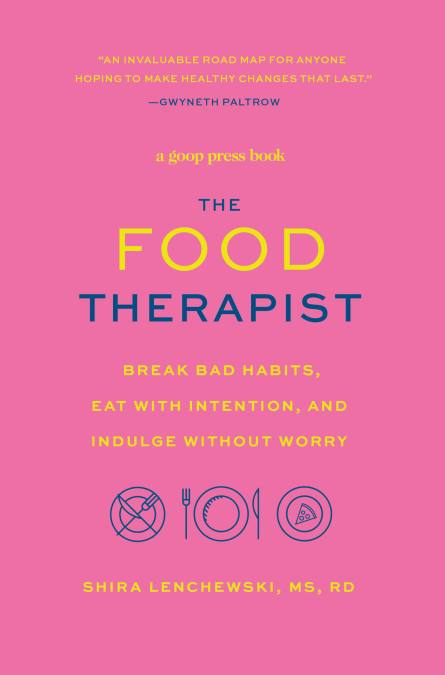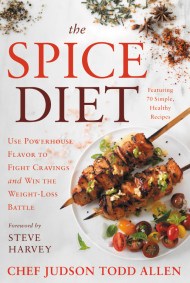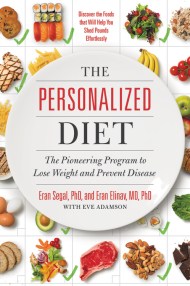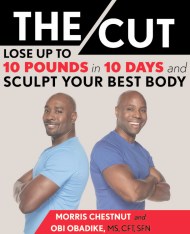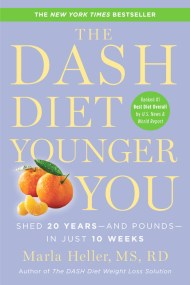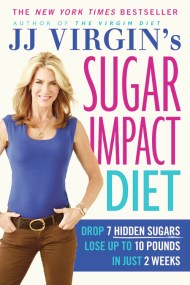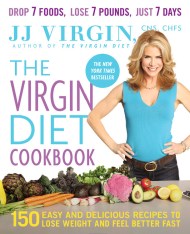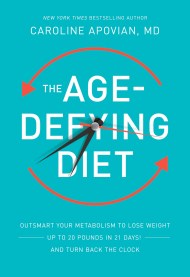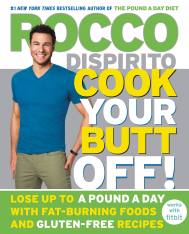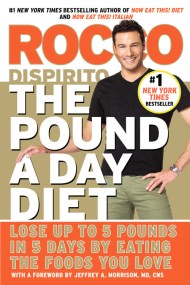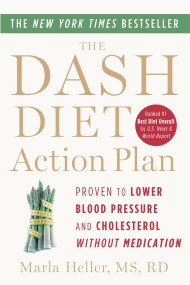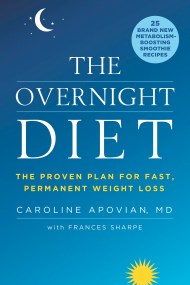Shopping Cart
The Food Therapist
Break Bad Habits, Eat with Intention, and Indulge Without Worry
Description
In The Food Therapist, Shira Lenchewski offers readers an ongoing one-on-one food therapy session, revealing the root causes of our emotional hang-ups around food and providing the necessary tools to overcome them. This practical and judgment-free guide helps readers hone the skills needed to put their get-healthy intentions into daily action, such as planning ahead wisely, tuning into their fullness cues, and harnessing willpower (even when life gets messy).
Lenchewski also offers easy-to-follow, tasty recipes aimed at rebalancing our hormones and conquering our cravings without deprivation. The Food Therapist is a refreshingly modern resource that helps us finally un-complicate our relationship with food and our bodies. We can then focus our efforts on making thoughtful, healthy choices, day in and day out, which serve our ultimate goals, whatever they may be.
What's Inside
THE FOOD THERAPIST
If you asked people to post a status update on their relationship with food, I’m guessing most would toggle to “It’s complicated.” Much like thorny love connections, our relationship with food is one of life’s most emotionally loaded, yet still instantly gratifying, bonds. When things are good, they’re oh so good—there’s passion and excitement, comfort and confidence—the stuff you wouldn’t trade for anything. On the other hand, when your interactions feel stagnant or strained, everything seems like a struggle. You may go through periods of second-guessing your every move or maybe even giving up effort entirely. Yet, while any genuine romantic relationship is bound to be somewhat complicated, given that there are built‑in issues of trust and fairness along with a second helping of life’s problems (since there are two of you), the same doesn’t have to be true of your relationship with food.
The interesting thing, though, is that many of us analyze our romantic relationships at length (and—ahem—sometimes to death) but don’t really spend much time digging deep when it comes to our ongoing relationship with food. But here’s the simple truth: You can’t make better, more consciously driven food decisions that are in line with what you really want for yourself and ultimately reach your health and bod goals if you don’t examine the roots of this vital relationship. And yet, in my experience, most people haven’t even skimmed the surface of their personal backstory with food (aside from throwing endless shade at themselves).
When people used to ask me about my interest in nutrition, I’d often tell them about growing up as an athlete (rowing) and my focus on food in terms of fueling my body. While both those things are valid, I realized later that I was leaving out what was in many ways much more important and relevant: the full picture. I was an uber-anxious, self-conscious kid who grew up in the 90s, when the fat-free craze and other gag-worthy diets were alive and well. I grew up hearing about weight a lot—family members saying things like, Ugh, I’m so fat, Look how skinny she is, etc. I was actually a healthy-looking kid, but I didn’t feel good in my own skin. I didn’t love my bod, but I did love food, and I thought that you kind of had to pick a lane—you could either feel good about your bod but relinquish the joys of eating delicious food, or you could enjoy food but in turn sacrifice having the body you wanted. I genuinely thought it was an either/or thing. Without all the facts, the self-awareness, or the self-compassion, I became the queen of Diet Coke and sad salads with dressing on the side. As I eventually discovered, not only is this a really gloomy way to live, but restricting yourself this way doesn’t actually work. It keeps you forever hungry and constantly thinking about food, and quite frankly, I had more important sh*t to do.
Ditching this narrow mindset was a complete and utter game changer, but I couldn’t have switched gears without forgiving myself for doing it wrong all those years, for doing the eating equivalent of biking uphill with my brakes on (something I’ve unfortunately done, by the way). The moral of the story for me was that you don’t have to choose between looking and feeling your best and eating delicious, flavorful, satisfying food. In fact, I honestly think you’ve got to have both factors at play to make consciously healthy food choices on the regular. It’s the same reason you’ll never find me fasting on Yom Kippur (Jewish New Year), doing a liquid cleanse, or engaging in anything ultrarestrictive when it comes to food because, honestly, I’ve been there and done that, and not only did it feel like crap but it also didn’t bring the results I craved. So rest assured: The reason I can speak so definitively about food-related missteps is that I’ve known them intimately, both personally and professionally.
Some details on the professional part: I’m a registered dietitian in private practice in Los Angeles, and I’m more or less a food therapist. Truth be told, the gig wasn’t exactly what I was expecting, coming out of my clinical-nutrition graduate program, but I’ve fully embraced the role. In grad school at NYU, I pored over biochem and organic chemistry with serious gusto. (Not joking; I freaking love science.) But after finishing my dietetic residency at Mount Sinai Hospital in New York City, I realized just how much the science stuff takes a backseat to the emotional aspects in everyday life. In my practice, I work with different types of women and girls (and some dope dudes, too), from editors, law-firm partners, MBA students, middle-schoolers, high-schoolers, and Hollywood folk to working moms and full-time moms—a varied and unique bunch, to say the least. Early on, I noticed a recurring theme that’s still ongoing today: Most of my clients can immediately rattle off all the things they ought to be doing: limiting added sugar, exercising portion control, making better choices at restaurants, etc. The problem is that they’re not actually doing those things on a regular basis. In other words, there’s a gap between their intentions to get healthier or lose weight and their day‑to‑day eating behaviors. So before my clients and I get to the actual meal planning, the crux of our initial work plays out more like a food therapy session, getting to the bottom of why they aren’t doing those things.
But how is it that so many of us are motivated to look and feel better and understand the basics needed to get there, and yet we’re not following through? Hint: It’s not because we’re the worst (although, ironically, that’s often where our heads go). It’s largely because the vast majority of us have a conflict-ridden relationship with food. When you add up the emotional baggage that comes with that troubled-relationship territory, the constant distractions we all deal with on the daily, and the physiological issues involved, it’s not actually all that shocking that we’re not delivering on our get-healthy goals. The reality is, it’s really difficult to translate our good intentions into effective actions in the face of all this noise, because we’re constantly working against ourselves.
Here’s the awesome news: It’s scientifically proven that at any age, we can change the way our brains function to boost willpower and develop consistent healthy habits and behaviors, even if those habits and behaviors don’t necessarily come naturally to us. But we can only get there if we’re willing to flex different mental muscles and practice these moves on a regular basis. The first step in developing healthy behaviors is to identify your personal roadblocks and then to phase out your emotional hang-ups around food and your body. After that, you can start applying strategies to help you deal with these root causes in order to make truly thoughtful eating choices that serve your ultimate goals, whatever they may be.
And that is exactly what you’re going to learn to do in this book. Part One is like a one‑on‑one food therapy session, where I’ll help you broaden your understanding of your personal history with food, what makes you tick (and eat), when you tend to lose control, and what your values are in terms of indulgence and pleasure. You’ll begin by pinpointing the factors that cause you to stray from your healthy-eating intentions so you can use that info as a road map to anticipate and sidestep those obstacles in the future. Then you’ll learn how to develop workable food-related coping strategies that will better serve you—including how to tune in to your body’s signals (no ashram required) and employ willpower more efficiently so it’s available when you really need it. In Part Two, I’ll map out the Food Therapist Plan for getting your hormones working for you, including meal plans, recipes, and strategies for keeping this plan sustainable and enjoyable for the long haul. I’ll also help you develop tools that will enable you to bounce back quickly when things go amiss (this is real life, after all). All of this will help you set yourself up to execute new behaviors that will become habits—and keep honoring them long after the New Year or that beach vacation.
By the time you’ve finished this book, you will have gained a permanent spot in the driver’s seat. Rather than allowing your emotions, your environment, or other factors to dictate what or how much you eat, you’ll be in charge of your own food decisions. I’m also certain that you, too, have way better things to do than stress about food. It’s on.
